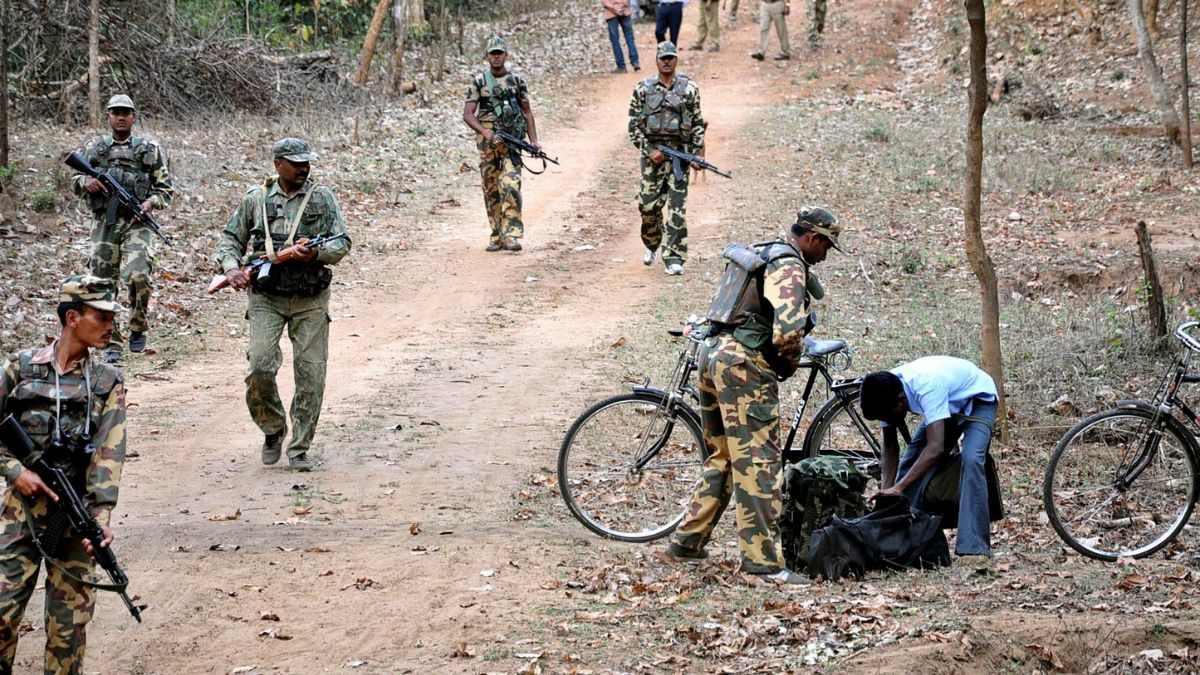In a letter signed by ‘Abhay’, the Communist Party of India-Maoist (CPI-M) has offered ceasefire and sought peace talks with the Centre.
The CPI (M) said it would give up armed insurgency to join mainstream politics and asked the Centre to declare a one-month ceasefire and halt ongoing anti-Maoist operations. While the Centre has not made any comment, the Chhattisgarh government has said it is checking if the letter is authentic.
It is at least the third time that the CPI (M) has published a letter calling upon the Centre to declare a ceasefire and pursue peace talks. Out of these three letters, two were issued in the name of Abhay — the first was issued on April 2.
Who is Abhay, the Maoist leader making calls for peace?
Abhay is the nom de guerre of top Maoist leader Mallojula Venugal Rao. He is also known by other names, such as Bhupati, Vivek, Rajan, and Sonu.
Unlike Maoist cadres, who often come from tribal communities, Abhay is from Telugu Brahmin family, according to The Times of India.
Abhay’s wife, Tarakka, and older brother, Mallojula Koteshwar Rao alias Kishenji, were also part of the Maoist movement. While Tarakka surrendered before the police last year, Kishenji was killed in a gunfight in West Bengal in 2011.
Abhay is the member of the CPI (M) Politburo, the body within the Central Committee of CPI (M) that essentially runs the outfit, and Central Military Commission (CMC), the top military affairs body of the outfit, according to The Indian Express.
Abhay is also a spokesperson for the outfit, as per the newspaper.
As one of the senior-most Maoist leaders, Abhay was seen as the frontrunner to be elected as the CPI (M) chief after the killing of Nambala Kesava Rao alias Basavaraju in May. However, Thippiri Tirupati alias Devji was eventually elected as the outfit’s chief, according to Hindustan Times.
In May, Chhattisgarh Police killed Basavaraju in forests in state’s Narayanpur district. Since his killing, several top Maoist figures, such as Sahadev Soren, Raghunath Hembram, Virsen Ganjhu, and Modem Balakrishna have been killed.
After the killing of Basavaraju, The Times of India had reported that Abhay was likely to surrender as well.
An official said at the time that Abhay was likely based in the hilly forests of Abujmarh, the hilly forest area spread across Maharashtra and Chhattisgarh.
“Forces are prodding deeper and moving fast. The tables have turned. The guerrillas are under siege. They can no longer ambush with mines or grenades,” a senior police officer told the newspaper at the time.
Abhay’s journey as a Maoist
Abhay and his brother, Kishenji, belong to Telangana’s Peddapalli district. He is said to have a B Com graduate.
Abhay and Kishenji are said to be among many students who joined the Maoist movement in 1970s amid the anti-establishment sentiment prevalent at the time in the state — the united Andhra Pradesh.
Writing in The Express, Sreenivas Janyala noted that Abhay and Kishenji were brought up in a family of freedom fighters with modest means.
As a student at the Government Degree College in Peddapalli, Abhay was accused of setting a government bus on fire during an anti-government. Kishenji was also an accused in the case.
Janyala noted that Kishenji first joined the Maoist insurgency and Abhay followed suit. The article further said that Abhay travelled across the Maoist-dominated areas in various states to carry out operations, often with Kishenji, throughout 1990s. The brothers’ stature kept increasing within the Maoist movement.
Do Maoists really want peace?
In the letter, Abhay said that Maoists have decided to shun arms in the wake of changed national and global circumstances.
Abhay said that the Maoists have decided to “declare a temporary halt to the armed struggle”. He said that the CPI (M) wants a month’s time to hold consultations with cadres and leaders to build consensus for talks with the government.
Abhay said that Maoists would hold talks with Union Home Minister Amit Shah or a person or a delegation designated by him.
For such talks, however, Abhay said that the Centre should immediately declare a formal ceasefire for a month, stop search operations, and take forward the peace process. After shunning arms, he said Maoists would join mainstream politics and “fight shoulder to shoulder with all political parties and organisations fighting for the public cause as far as possible”.
While the Centre has not responded to the letter, Chhattisgarh Deputy Chief Minister Vijay Sharma told The Times of India even though the authenticity of the statement is yet to be confirmed, there are notable differences in the latest statement, such as the usage of the issuer’s photograph for the first time, the changed writing style, and the mention of an email ID.
However, Sharma, who also holds the home department portfolio, objected to the usage of “ceasefire” by the Maoist outfit.
“The word ceasefire is highly objectionable because there’s no war going on here that needs a ceasefire. There can be no ‘conditional’ talks in democracy and they have again come up with conditions like before. But, after verification of the press note, we will discuss within the govt and make a decision. Besides, the letter for ceasefire is dated on August 15, and Maoists had since then killed villagers and planted IEDs that had injured our jawans,” said Sharma.
Sharma said that the best way for Maoists is to surrender, avail provisions of rehabilitation policy, and contribute to building the nation, even as a political person.
End of Article

)

